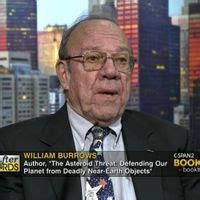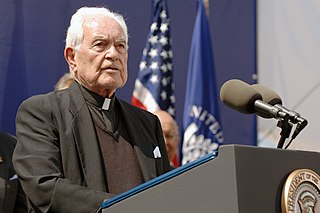A Quote by William E. Burrows
The most important fact of this century is not that Earth is threatened in many ways, It is that for the first time in all of its history a decisive means of protecting the home planet exists. It is by using space.
Related Quotes
One of the most memorable moments was when I first saw earth because I had seen many pictures, many videos of earth from space, and being able to see that with my own eyes had a completely different effect, and sort of almost sensing life emanating from our planet in the dark background of the space, it was a really memorable experience.
... my century.. is unique in the history of men for two reasons. It is the first century since life began when a decisive part of the most articulate section of mankind has not merely ceased to believe in God, but has deliberately rejected God. And it is the century in which this religious rejection has taken a specifically political form.
We are always in the space in-between... all the spaces where you are not actually at home. You haven't arrived yet.... This is where our mind is the most open. We are alert, we are sensitive, and destiny can happen. We do not have any barriers and we are vulnerable. Vulnerability is important. It means we are completely alive and this is an extremely important space. This is for me the space from which my work generates.
17,000 children starve on this planet every single day. That fact alone should blow any conscious person out of their chair. You know, my mother used to say that a woman’s most important job is taking care of her children and her home. I laughed at that when I was younger, but I don’t laugh at it anymore. I just realize now that every child on the planet is one of our children, and the earth itself is our home.
What you aren't ready for being the first time in space - on an emotional and intellectual level - is how looking down at Earth will profoundly affect you. Over the long term, it has changed the way I think about planet Earth. When you go around the planet and look down, you think about the fact that this is the cradle of humanity, that this is a place where seven billion people, 200 countries, live side by side, that we share this place and there's nowhere else to go.
If you represent the Earth's lifetime by a single year, say from January when it was made to December, the 21st-century would be a quarter of a second in June - a tiny fraction of the year. But even in this concertinaed cosmic perspective, our century is very, very special: the first when humans can change themselves and their home planet.
The apologists for space science always seem over-impressed by engineering trivia and make far too much of non-stick frying pans and perfect ball-bearings. To my mind, the outstanding spin-off from space research is not new technology. The real bonus has been that for the first time in human history we have had a chance to look at the Earth from space, and the information gained from seeing from the outside our azure-green planet in all its global beauty has given rise to a whole new set of questions and answers.
Many people may not recognize that the development of space exploration technologies has already helped benefit Earth in many ways, especially when it comes to communications, Earth observation and even fostering economic growth. Space technologies are surprisingly critical in impacting government, industry and personal daily decision-making.
If anything, when you're up in space and you're inside a space ship, which is your home, and without which you would not survive, you know that Earth is your home. This is the only place you can return. In fact we're very meticulous. Part of our job is to maintain the spaceship. If we apply the same kind of model to Earth maybe we'd have a different outlook.


































